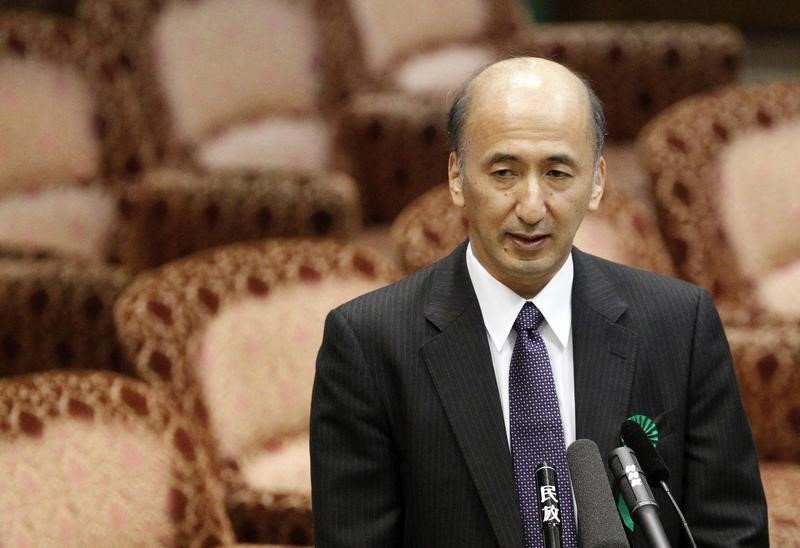By Jonathan Spicer
NEW YORK (Reuters) - The Bank of Japan's commitment to achieving its 2 percent price target is "unshakable," its deputy governor said on Friday, signalling that he has no intention of watering down the goal despite a slowdown in inflation driven by slumping oil prices.
BOJ Deputy Governor Hiroshi Nakaso said Japan now has a good chance of witnessing a "true dawn" with the economy emerging from the hit from last year's consumption tax hike and now back on a sustained growth path.
Long-term inflation expectations in Japan, which have long hovered around zero to 1 percent, have recently gathered momentum and tightening labour market conditions are expected to lead to wage increases, he said.
"Despite the lingering deflationary concerns, green shoots can increasingly be observed with regard to wage and inflation expectations," Nakaso said at a New York conference gathering some of the world's top central bankers.
But he stressed that Japan was only half-way in meeting the BOJ's price target as firmly anchoring inflation expectations at 2 percent required continued efforts down the road.
"As evidenced by the expansion of QQE (quantitative and qualitative easing) last October, the BOJ's commitment to achieving the price stability target of 2 percent is unshakable," Nakaso said, reiterating the BOJ's resolve to ease monetary policy further if needed to ensure the achievement of its target.
Nakaso said that while it was premature to discuss an exit strategy for QQE, the BOJ and the European Central Bank will learn a lot from the Federal Reserve in terms of unwinding its balance sheet.
In deploying its "quantitative and qualitative easing" (QQE) policy in April 2013, the BOJ pledged to double base money via aggressive asset purchases to hit 2 percent inflation in roughly two years in a country mired in 15 years of deflation.
The central bank expanded QQE in October last year but slumping oil prices and weak household spending have pushed consumer inflation near zero.

Many analysts doubt the BOJ will meet its pledge of hitting 2 percent inflation in the fiscal year beginning in April and some, including prominent academics, have called for lowering the price target or watering down the time-frame for hitting it.